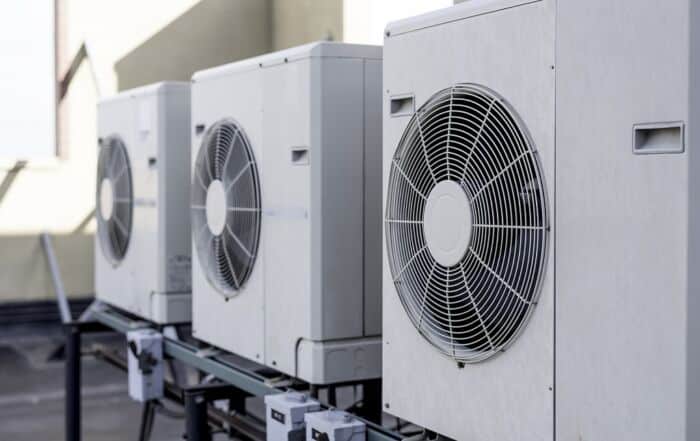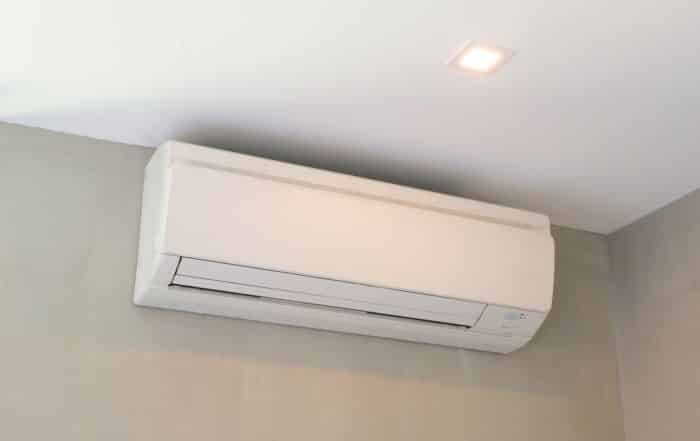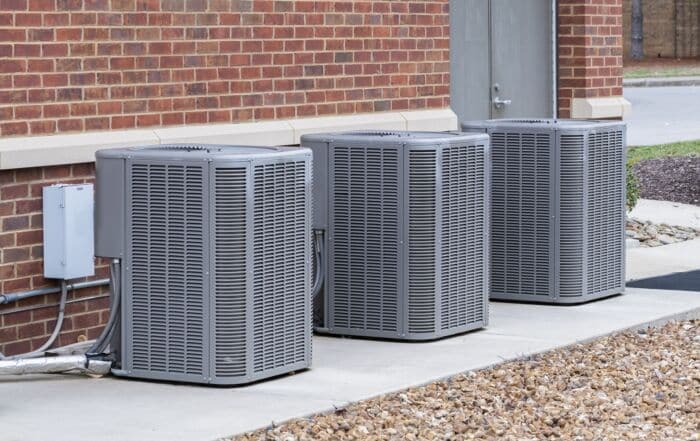Air conditioning units are a staple in many homes, especially during the hot summer months. They provide comfort and can even improve indoor air quality.
However, there are many misconceptions about how to use AC systems efficiently and the associated costs. Understanding the truth behind these misconceptions can help homeowners optimize their AC usage, save money, and prolong the lifespan of their units. Ready? Let's dive right in.
Misconception 1: Leaving the AC on All Day is Cheaper Than Turning it Off and On
The Truth
Many homeowners believe that it's more cost-effective to leave the AC running all day rather than turning it off when they leave the house and back on when they return. The reasoning behind this misconception is that the AC uses more energy to cool a warm house down than to maintain a constant temperature.
Reality Check
In reality, it's more efficient to turn the AC off when you're not home. Modern AC units are designed to cool down your home quickly and efficiently once turned on. To maximize efficiency, consider using a programmable thermostat that can turn the AC on shortly before you arrive home.
Tips for Optimizing AC Usage
- Use a programmable thermostat.
- Close blinds or curtains to block out heat from the sun.
- Ensure your home is well-insulated to keep cool air inside.
Misconception 2: Lowering the Thermostat Temperature Cools the Room Faster
The Truth
It’s a common belief that setting the thermostat to a much lower temperature will cool the room faster. Many people think that the AC unit will work harder and drop the temperature more quickly.
Reality Check
AC units operate at a constant rate regardless of the temperature setting. Lowering the thermostat to an extreme temperature won't speed up the cooling process; it will only make the unit run longer, consuming more energy without offering immediate relief.
Understanding Thermostats
- Thermostats control the target temperature, not the speed of cooling.
- Set your thermostat to a comfortable temperature, usually around 75°F to 78°F, for efficient cooling.
Misconception 3: Bigger AC Units Are Always Better
The Truth
There is a prevalent belief that larger AC units can cool homes more efficiently and effectively. Some homeowners think upgrading to a bigger unit will solve all their cooling problems.
Reality Check
An oversized AC unit can actually be less efficient. Larger units reach the desired temperature too quickly, causing them to cycle on and off frequently. This not only increases wear and tear but also results in higher energy consumption and uneven cooling.
Importance of Correct Sizing
- Conduct a load calculation to determine the appropriate size.
- Consider factors like home size, insulation, and local climate.
Misconception 4: Regular Maintenance Isn't Necessary for New AC Units
The Truth
New AC units are often perceived as maintenance-free. Homeowners might think that since the unit is new, it doesn't require any upkeep for the first few years.
Reality Check
Regular maintenance is crucial, even for new AC units. Routine check-ups help ensure the unit operates efficiently, extends its lifespan, and prevents costly repairs down the line.
Benefits of Regular Maintenance
- Improved efficiency and reduced energy bills.
- Early detection of potential issues.
- Prolonged lifespan of the AC unit.
Misconception 5: Closing Vents in Unused Rooms Saves Energy
The Truth
Many homeowners believe that by closing vents in unused rooms, they can direct airflow to other areas and save on energy costs. This seems like a logical way to enhance efficiency without compromising comfort.
Reality Check
Closing vents in unused rooms can actually have the opposite effect. Modern HVAC systems are designed to balance pressure throughout the home. When vents are closed, this pressure balance is disrupted, causing the system to work harder and less efficiently. This can lead to increased energy consumption and potential damage to the system over time.
Implications of Closing Vents
- Increased air pressure in the ducts.
- Potential for leaks and damage within the system.
- Reduced overall efficiency and higher energy bills.
Proper Energy-Saving Tips
- Instead of closing vents, use zoned heating and cooling systems.
- Ensure regular maintenance of your HVAC system.
- Invest in proper insulation and sealing to keep your home efficiently cooled.
By understanding and debunking these common misconceptions, homeowners can make more informed decisions, leading to a more efficient, cost-effective, and comfortable living environment.
Understanding and dispelling common misconceptions about air conditioning usage and costs can lead to significant benefits for homeowners. By turning off the AC when not in use, setting the thermostat to an efficient temperature, choosing the right-sized unit, and maintaining the system regularly, homeowners can enjoy a comfortable living environment without breaking the bank.
Get In Touch With Us
If you have questions or need assistance optimizing your home’s HVAC system, our team is here to help. We offer expert advice, professional services, and innovative solutions that can enhance your home's comfort and energy efficiency. Contact us today at (469) 833-3743 to schedule a consultation or learn more about our offerings!
Related Posts
Exploring Ductless Air Conditioning Systems for Small Spaces
If you’re a homeowner tired of sweating through sweltering summers, a ductless air conditioning [...]
Signs Your Air Conditioning Unit Needs Professional Maintenance
Imagine coming home on a sweltering summer day only to find that your air [...]
Common Misconceptions About Air Conditioning Usage and Costs
Air conditioning units are a staple in many homes, especially during the hot summer [...]


